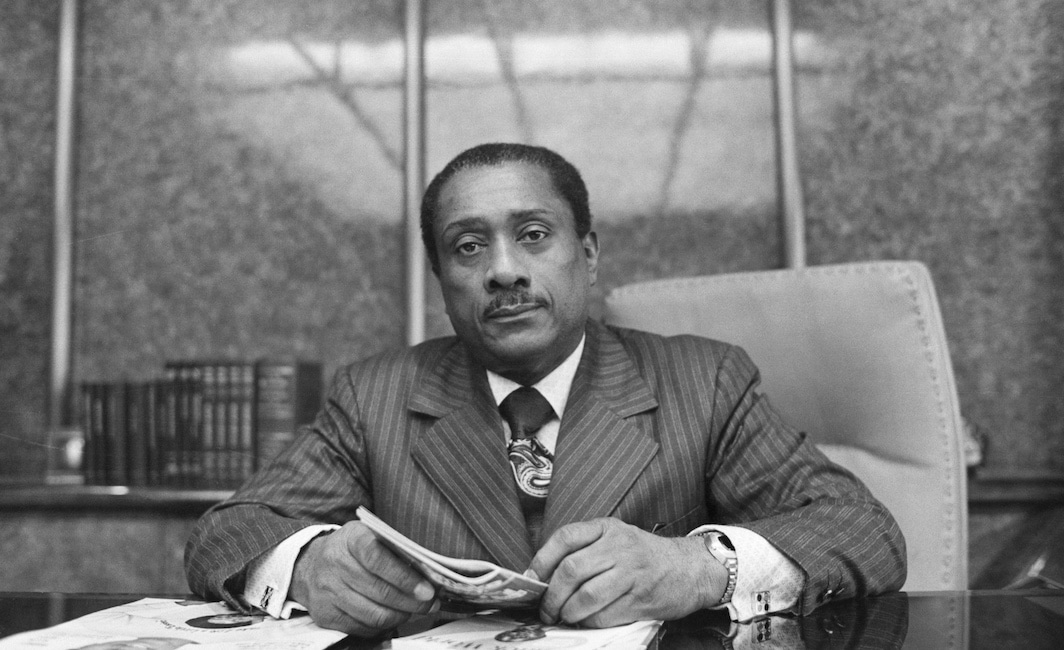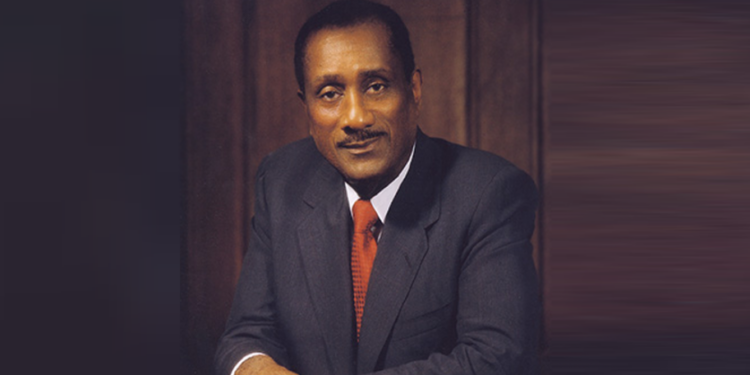John Harold Johnson was a media tycoon, publisher, and entrepreneur who revolutionised African American journalism.
He changed the way Black stories were reported in mainstream media by giving African American voices a forum as the founder of Ebony and Jet magazines.
Beyond just publishing, he was a representation of Black success in business, ingenuity, and tenacity.
This article explores Johnson’s life, accomplishments, and the enduring influence of his work on African American culture, commerce, and the media.
Early Life and Education

On January 19, 1918, John Harold Johnson was born into a working-class family in Arkansas City. His mother was left to raise him by herself after his father passed away when he was a child.
Johnson’s mother gave him a strong sense of ambition and perseverance despite the poverty and racial injustice he experienced in the divided South.
Following a presentation by Black educator James Weldon Johnson in 1933, young John H. Johnson was motivated to dream bigger than his current situation.
Johnson attended DuSable High School in Chicago after his mother bravely decided to relocate there. He achieved academic success there and was elected class president. Later, he worked for the Supreme Liberty Life Insurance Company and went to the University of Chicago.
It was at Supreme Liberty that Johnson saw an opportunity that would change his life forever.
Building a Publishing Empire
Negro Digest (1942) – The First Step
Johnson became aware of the under-representation of Black professionals in the media while he was employed at Supreme Liberty Life.
He started Negro Digest with a $500 loan from his mother’s furnishings after being inspired by Reader’s Digest. With over 50,000 copies sold each month, the magazine immediately became popular and set the stage for his publishing success.
Ebony Magazine: A Revolution in 1945
Johnson launched Ebony, a full-sized lifestyle magazine that celebrated Black accomplishments in business, politics, entertainment, and culture, in November 1945.
Ebony, based on Life magazine, focused on uplifting Black tales to combat the under-representation of African Americans in the mainstream media.
Johnson persuaded Ford and Coca-Cola to contribute despite early opposition from advertisements, demonstrating the economic clout of Black consumers. Each issue of Ebony sold hundreds of thousands of copies, making it a national hit.
Jet Magazine (1951) – Fast-Paced News for the Black Community
Johnson founded Jet in 1951 to meet the increasing demand for easily accessible, swift news. Breaking news, entertainment, and civil rights problems were the main topics of this digest-sized weekly. Its publication of the horrifying photos of Emmett Till’s lynching in 1955, which exposed racial brutality to the world and fuelled the Civil Rights Movement, was one of its most significant milestones.
After passing away on August 8, 2005, his impact endured. Despite Ebony and Jet facing financial struggles in the digital era, Ebony was revived as a digital platform, ensuring Johnson’s mission continues.
Impact of Johnson’s Magazines
1. Representation of Black Excellence
At a time when mainstream media ignored Black success, Ebony and Jet provided visibility for African Americans excelling in business, politics, and entertainment.
2. Role in the Civil Rights Movement
Johnson’s publications became essential tools for activism, covering figures like Martin Luther King Jr., Malcolm X, and Rosa Parks while advocating for desegregation.
3. Redefining Beauty and Fashion
Ebony challenged Eurocentric beauty standards, celebrating Black beauty, models, and designers, inspiring generations of African Americans.
Lessons from John H. Johnson’s Success
- Persistence Overcomes Barriers: Johnson created a multimillion-dollar empire despite racial and economic obstacles.
- His work demonstrated the significance of Black storytelling in the media, proving that representation matters.
- The key is innovation; Johnson made regular adjustments to cater to Black audiences’ needs.
His legacy continues to serve as a tribute to Black media brilliance, cultural pride, and enterprise.











